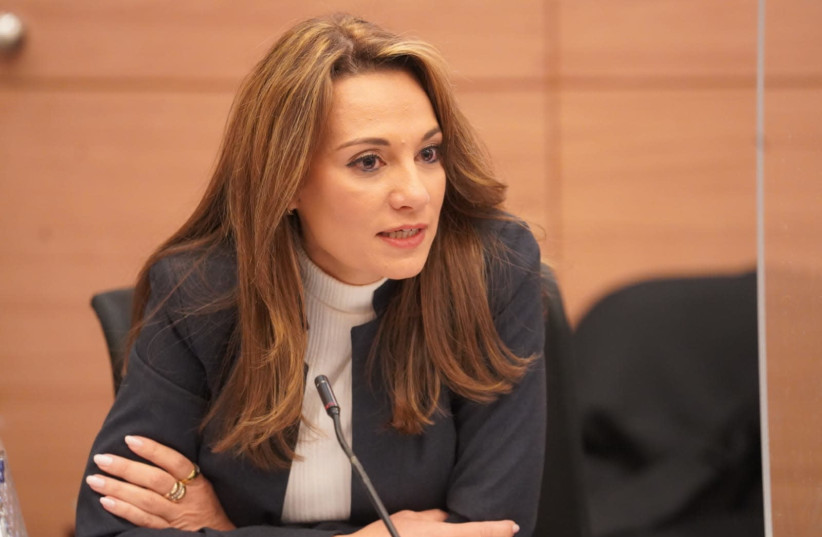The High Court of Justice ruled on Tuesday that Education Minister Yifat Shasha Biton must award last year's Israel Prize in Mathematics and Computer Science to Professor Oded Goldreich of the Weizmann Institute of Science in Rehovot, ending a legal battle that began nearly a year ago, in April 2021.
The ruling - which was given by High Court Judge Yael Vilner and supported by Judge Yitzhak Amit, with Judge Noam Solberg dissenting - overturns Shasha Biton's decision to follow her predecessor Yoav Gallant's (Likud) decision not to award Goldreich the prize, contrary to the prize committee's unanimous decision in March 2021.
This was the second time the case came before the High Court.
In August 2021, the High Court ordered Shasha-Biton to reconsider her decision including more fully studying the most updated evidence, but had still left her discretion on the issue in theory. Shasha-Biton in November announced that she was standing he ground and disqualifying Goldreich. The prize committee appealed the decision, and the cases were heard in court on February 24. The decision on Tuesday marked the end of the saga.
"The judges could have ruled on the issue when it [first] arrived at their doorstep [on August 12, 2021], but once it passed the decision to me it should have respected it," Shasha Biton responded on Twitter.

"A person who calls for a boycott on an Israeli academic institution is not worthy of a national prize from the State of Israel, no matter his achievements or political opinions," she wrote.
She then expressed her "sorrow" over the decision but promised to abide by it.
The call for a boycott referred to by Shasha Biton was a letter from March 23, 2021, and signed by over 500 academics, including Goldreich, calling on the European Union to respect its prior decision not to cooperate with academic institutions in the West Bank, among them Ariel University.
This prior decision is Article 19 of the EU's Horizon 2020 Framework Regulation, which says that the activities carried out under Horizon 2020 must "comply with ethical principles and relevant national, Union and international legislation," amongst them "the respect of positions and commitments in conformity with
international law on the non-recognition by the EU of Israel’s sovereignty
over the territories occupied by Israel since June 1967."
In overturning Shasha Biton's decision, Vilner wrote that when Israel joined the Horizon 2020 program in 2014, it signed a provision that the West Bank would be excluded. This provision was ratified again in 2017, and again in December 2021.
"The Education Minister overstepped the extremely limited circumstances laid out in [previous] rulings for intervening in the decision of the [prize] committee, by speaking in two voices," Vilner wrote.
"The first voice - As part of the cooperation agreement with the EU, the Minister, being part of the government, de-facto excluded the area of Judea and Samaria from the academic cooperation between Israel and the EU."
"With her other voice - the Minister decided to prevent Professor Goldreich from receiving the prize for calling for the exact same exclusion," Vilner wrote.
She deemed this a "lack of coherency," and while she agreed that there are extreme cases in which the Education Minister can override the prize committee, this is definitely not such a case, since Goldreich called on the EU to enforce a decision that the State of Israel itself had signed off on.
Solberg in his dissenting opinion wrote that there was a difference between the petition signed by Goldreich and the Israeli government's decision.
While the government was forced to agree to the provision in its agreement with the EU, Solberg argued, it made clear in the agreement that this did not constitute a change in its policy regarding the West Bank. However, Goldreich independently and voluntarily signed the petition, which claimed that the Israeli settlements were illegal and that supporting academic institutions n the West Bank further empowered Israel's "unlawful military occupation and its oppression of millions of Palestinians."
Hence, Solberg argued that Shasha-Biton's arguments were valid, and the court should not intervene in her decision.
Judge Yitzhak Amit agreed with Vilner. He disagreed with Solberg's assessment that the State of Israel was "forced" to sign the provision excluding West Bank institutions, and added that the violation of freedom of speech caused by not awarding Goldreich the prize was greater than the harm caused by a call to boycott Ariel University.
